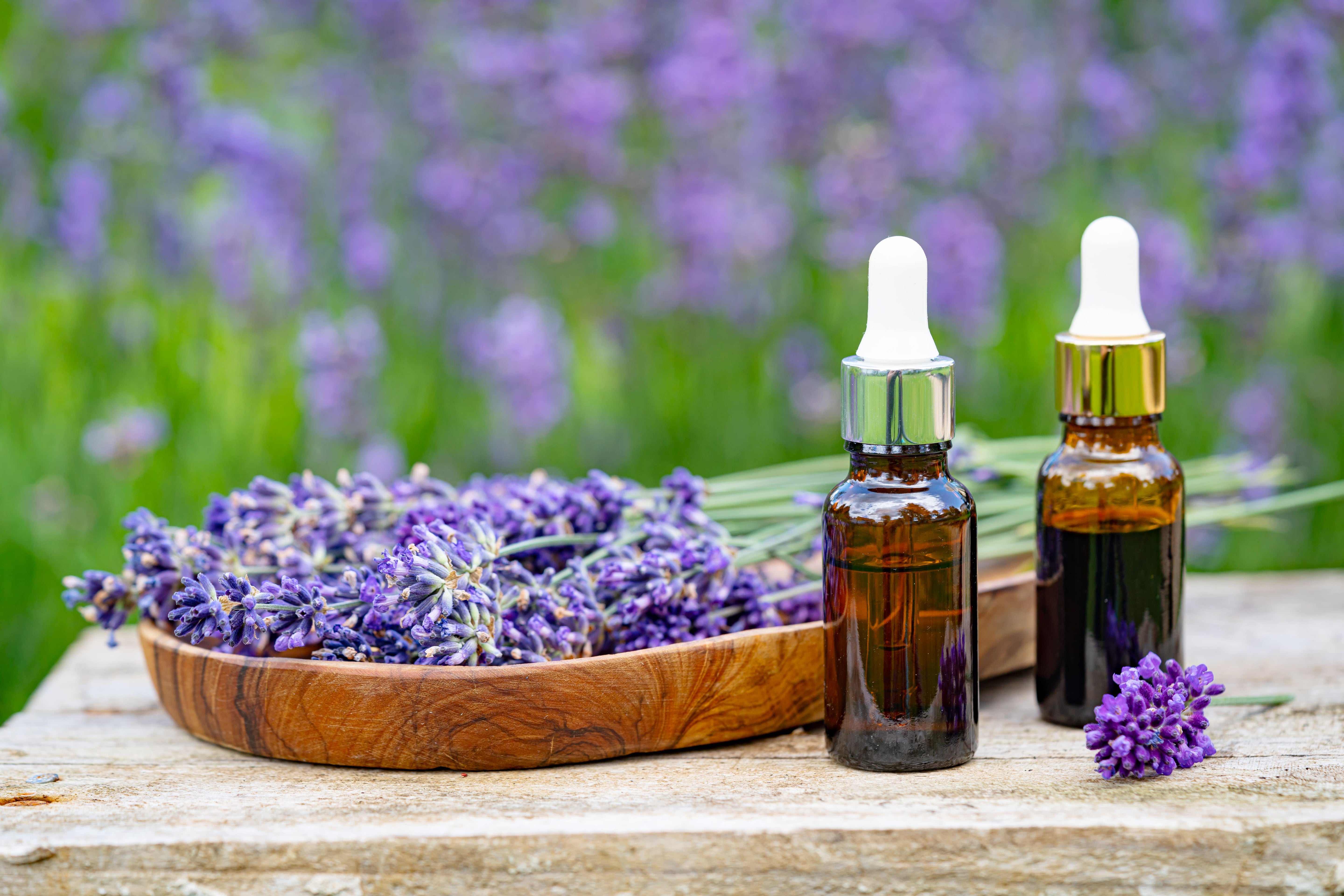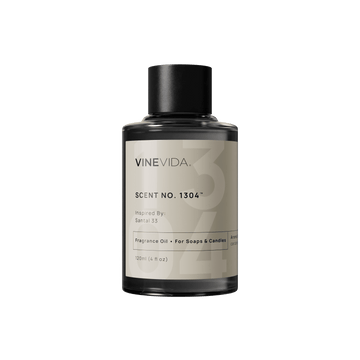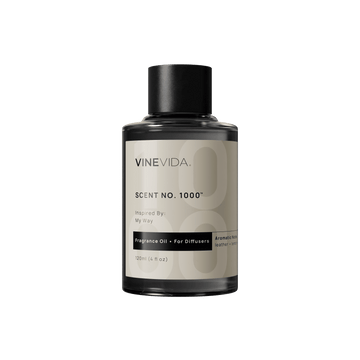Lavender is most people’s way of discovering essential oils. Its complex chemistry means it is not only blissfully relaxing and soothing but is also responsible for anti-inflammatory, analgesic, and antibiotic effects, among others. So, when slathering so much of it on, we have to ask ourselves, “Is Lavender good for skin long term?”
As ever, there is a yes and no answer. It is tremendously healing for burns, cuts, and grazes. It is soothing for itchy, red, and irritated skin. Teenage, greasy, spotty skins respond fabulously to Lavender Essential Oils, but any other kinds of skin will start to dry out over time. Also, it is still unclear how lavender interacts with sebum, the oily film that forms over the skin to lubricate it and protect us from bacteria. When they sense lavender, sebaceous glands seem to slow production, which is fabulous if you have too much oil, but not excellent otherwise. So people with normal and dry complexions should avoid using too much lavender essential oil.
How Is Lavender Good For Your Skin?
Choose it in small amounts if your skin is:
- Itchy
- Sore
- Burned
- Grazed
- Greasy
Why is Lavender Bad for Skin?
One thing that is written a lot about aromatherapy is that, because they are natural, essential oils have no side effects. That is simultaneously both a profound truth and a lie.
Essential oils do not have side effects, but what they do have, instead, are many main effects. You can be focusing on getting them to do one thing, but they might be doing something you don’t like behind the scenes. Grapefruit is an excellent example of this. We’ll often use it to make us feel more motivated and happier, but simultaneously it’s thinning the blood. That’s fine if you have normal blood, but if you have a platelet disorder or are on blood-thinning medication, this could be very dangerous if you cut yourself or have surgery. It’s not a side effect because it’s not an accident. It is one of the main effects of grapefruit oil.
One of the reasons aromatherapists have so many oils is that they see where the overlaps between the uses are and how you can leverage those for the best effects. So, even though we would love to put lavender in the bath every day to help us sleep, if we don’t spread our knowledge a bit further to encompass other oils, we’re going to end up with dry, itchy, flaky skin. Bizarrely, that’s what we would typically use lavender to heal, but if we’re not mindful, we’ll create problems for ourselves. It’s a bit like hanging out with a very catty gang. Sooner or later, you will realize their qualities are a bit much, and you’ll need to dilute them with newer, different friends.
Can You Put Lavender Oil On Your Face?
Yes, certainly. It’s a gentle oil, especially if you dilute it. How long you use it is more tissues. Let’s break down the different skin types to get a better look.
Is Lavender Oil Good For Skin That’s Spotty?

It is excellent because of this interaction with the sebaceous glands. In addition, sebum can block the pores, so the lavender helps on several levels.
It used to be good practice to put a drop of neat lavender or a drop of excellent tea tree onto zits, but the current feeling is that it could lead to skin sensitivity.
Perhaps dilute into some jojoba with a consistency similar to sebum but less likely to clog the pores. Then, just dab it on as and when required.
It’s also worth making yourself a toner with lavender. Lavender Essential Oil is astringent, tightening, and toning. Add a few drops of lavender to a teaspoon of vodka to break down the oils, then add to distilled water.
Short term, people who have acne-prone skin can often see a slight difference in their skin just by relaxing with lavender oils. Long-term, it’s worth moving over to something like clary sage or jasmine, which are astringent but nourish the skin.
Clary sage and jasmine would not be safe throughout most of the pregnancy. They are both uterine tonics that should not be used until after the first 37 weeks.
Is Lavender Oil Safe for Sensitive Skin?
However, rose essential oil, violet absolute, German chamomile, and yarrow would be better. These would calm your irritability and nourish your skin with roses, jasmine, and neroli.
The “main effects” thing comes into play here because where lavender is safe to use during pregnancy, as long as the first 16 weeks have elapsed, rose and Jasmine would not be. Both being uterine tonics, they should be left until after 37 weeks. Likewise, Neroli, violet, German chamomile, and yarrow would be safe after 16 weeks.
Is Lavender Oil Good For Skin That’s Dry?
Hopefully, I shouldn’t have to elucidate that now. If you use lavender at any time, your skin will get drier. Relaxing oils that would be better for people with dry skin are geranium, vetiver, rose, patchouli, cardamom, and Jasmine. All of these are spectacular for nourishing the skin. Rose and Jasmine must be left to the end of a pregnancy term, but the rest are lovely and safe to use except during the first 16 weeks of pregnancy.
Is Lavender Oil Good For Skin That’s Itchy?
It calms redness and reduces irritation. So too do the blue oils like German chamomile and yarrow. Their blue color comes from their azulene constituents. Unfortunately, neither of them is drying.
Roman Chamomile is chock full of anti-inflammatory components that can also be helpful here.
Certainly use lavender for a while, but then consider swapping some of these instead.
You could also leverage some of the significant effects of carrier oils. For example, evening primrose, calendula, borage, and argan oils are excellent for inflamed skin.
Likewise, lavender is super for itchy scalps, but again you could consider using it for dandruff. Combine it with some argan oil and some patchouli essential oil.
How you use it will depend on how severe the drying action is. If you add it to shampoo, the amount of time it will remain on your skin is negligible. Leave-in conditioners are a bit more, but if you use them once a week, there’s no contact.
Is Lavender Oil Good For Skin That’s Got Eczema?
Now we’re into a complicated zone, aren’t we?
Yess. Use it for eczema, psoriasis, and dermatitis, but let the other oils do the heavy lifting. That way, you only need to use lavender. You can afford to go tiny and often.
Carrier oils are fabulous for conditioning the skin. Argan, castor, almond, and calendula macerations are all potentially doing a better job than lavender, but you still want it to calm the itching.
Geranium rose, and patchouli all have significant effects on the dryness.
The best oil you can choose here will probably be German chamomile. It addresses the itching and redness. Although it does not have a medical license, it is accepted as one of the best treatments for eczema by doctors and alternative medicine practitioners.
Is Lavender Oil Good For Skin That’s Burned?
Yep. The only thing we can think of that comes close is a blend of helichrysum essential oil and rosehip carrier. The lavender essential oil in a bit of aloe vera gel is an excellent treatment for any kind of burn, from sunburn to chemical injuries.
In this situation, skin healing is a significant concern, and it is unlikely you would use lavender oil on your skin long-term.
Is Lavender Oil Good For Skin That is Sore?
Nothing soothes a baby’s bum better than lavender and german chamomile blended into some calendula maceration. But, again, diaper rash is an acute condition that needs intensive treatment for a short time.
Conclusion
The answer is that lavender oil is good for skin, depending on what kind of skin. For example, lavender would be the go-to oil for smooth, spotty complexions, particularly for teenage skin. However, it should not be used long-term on any other skin type because it interacts with the sebaceous glands.















